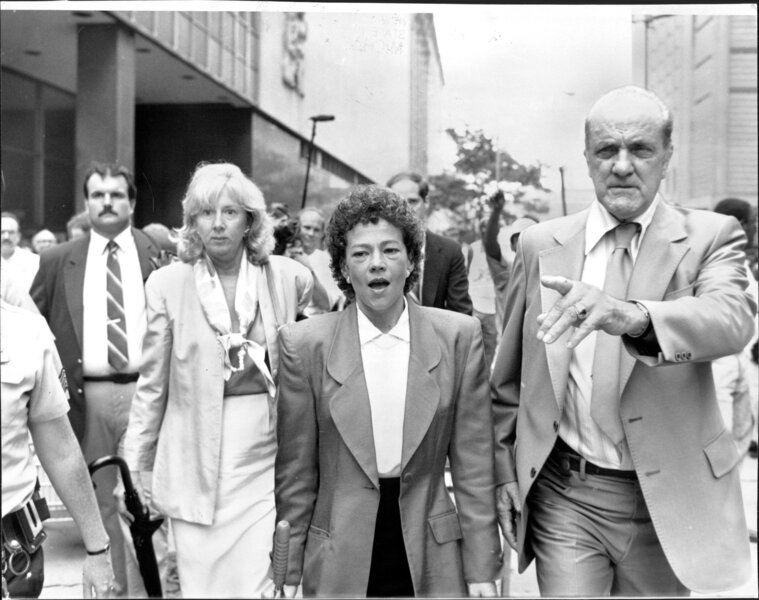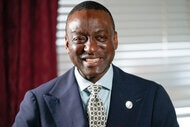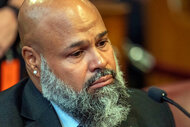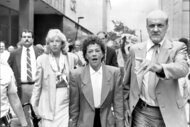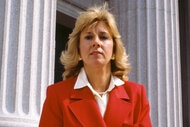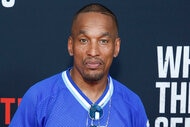Create a free profile to get unlimited access to exclusive videos, breaking news, sweepstakes, and more!
Where Is 'Central Park 5' Prosecutor Elizabeth Lederer Now?
Lederer spearheaded the prosecution of five teens of color for the rape of a white woman, which resulted in their wrongful convictions and imprisonment.
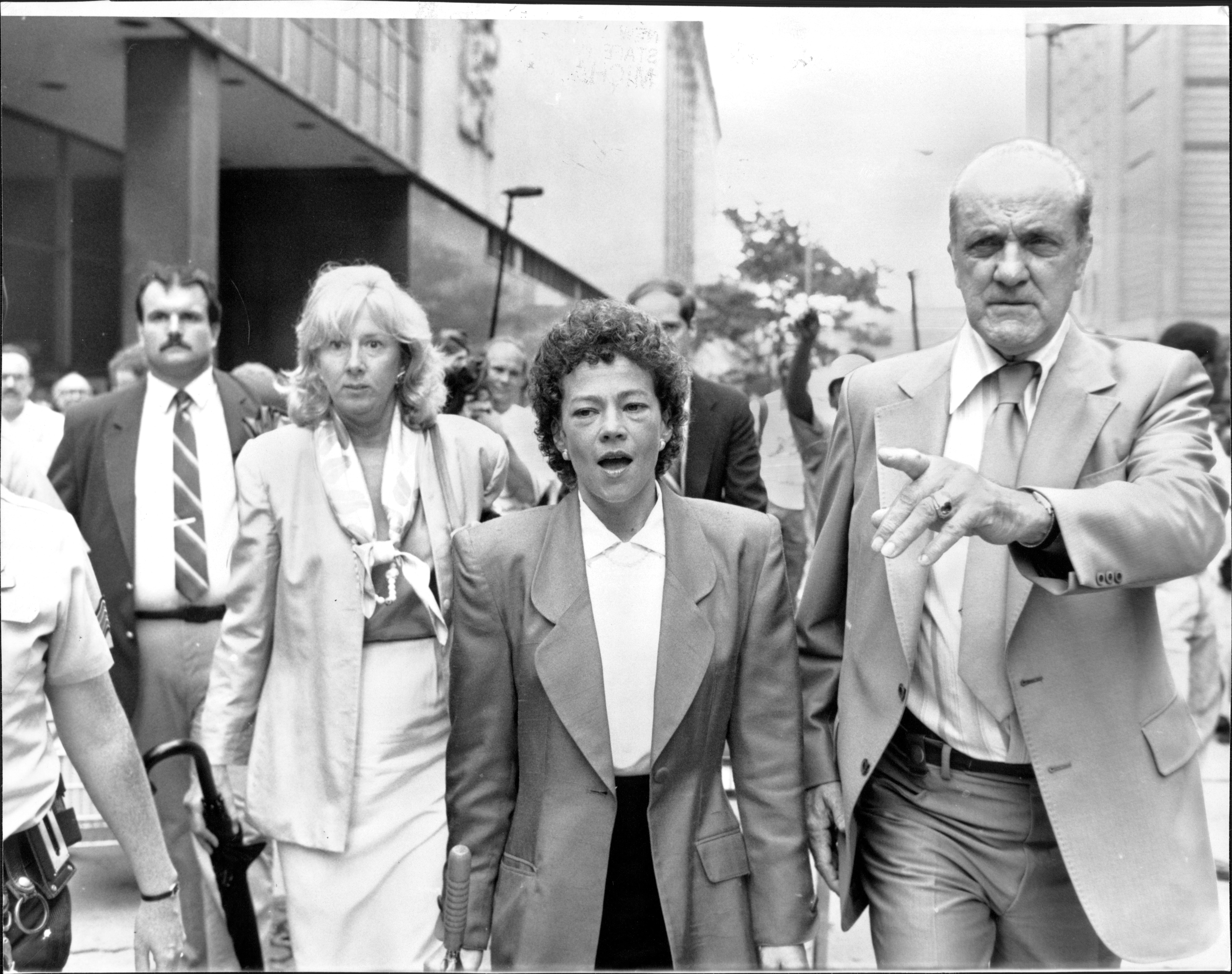
"When They See Us," Ava DuVernay's four-part Netflix film on New York City's infamous "Central Park Five" case, revisits a painful chapter in the city's history, one in which five teens of color were wrongfully accused, convicted and imprisoned for the brutal 1989 rape of a white woman jogging in Central Park. It also brings renewed scrutiny to the investigators and prosecutors involved, who critics say ruthlessly pursued a case underpinned by racism.
Elizabeth Lederer was the lead district attorney prosecuting teens. She had been assigned to the case by Linda Fairstein, who ran the office that supervised the prosecution in the case and who was portrayed unfavorably in the film.
It all began when a 28-year-old investment banker named Trisha Meili was severely beaten and raped while out for an evening jog on April 19, 1989. Police, who had responded to calls that same night about groups of teens harassing people in the park, honed in on Raymond Santana, 14, Kevin Richardson, 14, Antron McCray, 15, Yusef Salaam, 15, and Kharey Wise, 16. The boys, who came to be known as the “Central Park Five,” admitted on video to aiding in the Meili's rape, but later said their confessions were coerced by investigators who took advantage of their age. There was also no DNA evidence tying them to the scene of the crime. Still, they were convicted and sentenced to prison - with terms ranging from five to 13 years - for the attack.
It was only in 2002 that the boys were fully exonerated after serial rapist Matias Reyes admitted to the crime and investigators matched his DNA to that taken from the scene.
A 2002 New York Magazine article written after that startling reversal summed up the Lederer's misguided, yet effective, case.
"In the two ['Central Park 5'] trials, Lederer, the prosecutor, did a skillful job of weaving the jogger attack into the series of random acts of violence committed by packs of 30 to 40 youths that night. Yet that broader picture -- which prosecution sources still emphasize is crucial to the guilt of the five in the jogger attack -- has a large flaw. None of the seven other joggers and bicyclists who testified about other incidents was ever able to identify McCray, Richardson, Salaam, Santana, or Wise."
According to that article, Lederer played a big role in the videotaped confessions that the boys made, which appear to show them confused and struggling to make up the story that investigators wanted, all so they could go home. She can be heard sternly asking Wise questions on his videotaped confession.
"Now that I've advised you of your rights," Lederer asks, "are you willing to tell me the truth about what happened on the night of April 19, 1989?"
"This is serious," she tells him partway into the tape in the midst of his apparent confusion.
She also told the jury that hair of the jogger was found on one of the boys' articles of clothing, which was later proven to be untrue, according to the New York Times.
Lederer, played in the series by Vera Farmiga, is portrayed as initially challenging Fairstein but eventually getting worn down and assuming her role in a corrupt prosecution of the teens, ignoring the fact DNA found at the scene does not match that of the boys arrested.
So where is Lederer now?
She has not spoken publicly about her role in the case and didn't immediately return Oxygen.com’s request for comment.
She is still active prosecutor in the New York County District Attorney’s Office and also works at Columbia University where she teaches law.
“As senior trial counsel in the forensic and cold case unit, Lederer reviews and re-investigates unsolved murder and rape cases,” her Columbia profile page states. “She has previously worked in the labor racketeering unit investing organized crime in the construction industry, as well as in the sex crimes and career criminal units. Lederer brings several years of experience trying cases in these fields, and has taught trial practice and general litigation at various institutions.”
After Ken Burns' 2012 documentary about the case, a campaign was launched to have her removed from the university. A petition calling for her firing received more than 5,000 signatures at the time, according to The New York Times. She even received death threats, according to the Hollywood Reporter.
Writing in the New York Times in 2013, Jim Dwyer argued that "the petition against Ms. Lederer, in part, reduces her life in public service to a single moment, the jogger case. In fact, she has a lengthy resumé of unchallenged convictions in cold cases, having pursued investigations of forgotten crimes."
He admitted that yes, she made mistakes in regards to the case but that she was merely a cog in broken system. He mentioned that many others acted wrongly, including Donald Trump who asked for the return of death penalty for the five.
Criminal defense attorney and blogger Scott H. Greenfield told Oxygen.com that he agrees with Dwyer's New York Times piece and said "reducing a career prosecutor's life to one case is myopic at best."
"I have no idea what she knew or didn't know or was responsible for or should be held responsible for," he said, adding that it's difficult to know what happened behind closed doors or whether any external pressure was placed on Lederer.
Since the release of “When They See Us,” anger aimed at Lederer and Fairstein has ramped up again and people on social media have been calling out Columbia asking them to fire Lederer as a professor.
DuVernay, for her part, says she reached out to Lederer and others in the pre-production of the new Netflix series, but didn't receive any cooperation.
"Yes, I reached out to [victim] Ms. [Trisha] Meili, I reached out to Ms. Fairstein, I reached out to [prosecutor] Ms. [Elizabeth] Lederer, I reached out to [detective] Mr. [Mike] Sheehan—a lot of the key figures on the other side," DuVernay told The Daily Beast. "I informed them that I was making the film, that they would be included, and invited them to sit with me and talk with me so that they could share their point of view and their side of things so that I could have that information as I wrote the script with my co-writers.”
